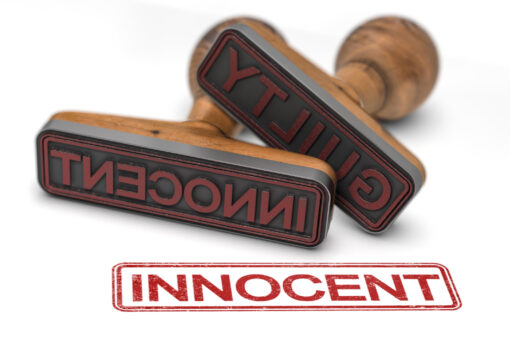Factual innocence is a fundamental concept in the criminal justice system, denoting a situation where an individual did not commit the crime they are accused of. This status can be established in various contexts and phases of the legal process, from before charges are filed to post-conviction stages.
Factual innocence implies that there are concrete facts indicating an individual’s non-involvement in the alleged crime. Keep reading to learn more and contact Chambers Law Firm at 714-760-4088 if you require a free legal consultation.
Proving Factual Innocence
The process of establishing factual innocence is diverse and can occur at multiple stages:
- Before Charges: Presenting evidence before any formal charges are made.
- After Charges, Pre-Trial: Demonstrating innocence after charges but before the trial.
- During Trial: Arguing factual innocence during the legal proceedings.
- On Appeal: Presenting new evidence or arguments in appellate courts.
- Post-Conviction Hearings: Reopening cases based on new evidence, such as DNA mismatch.
For instance, someone wrongfully convicted of a crime can later prove their innocence through new DNA evidence, while another person might demonstrate they were in a different country when the crime occurred, proving their physical inability to commit the offense.
Factual Innocence vs. Legal Acquittals
Not being convicted doesn’t always equate to factual innocence. Legal acquittals can occur for various reasons, including reasonable doubt, procedural errors, or civil rights violations by law enforcement. Conversely, individuals who are factually innocent may still be wrongfully convicted due to various systemic flaws, such as pleading guilty under duress or jury persuasion.
Filing for Factual Innocence in California
In states like California, a formal process exists for individuals to prove their factual innocence and seal their arrest records. This involves filing a petition under California Penal Code section 851.8, demonstrating the absence of reasonable cause for arrest. The petition can be filed under several circumstances, such as after an arrest without subsequent charges or following a dismissal of charges.
The Process of Filing a Factual Innocence Petition
To file a petition, individuals must approach the law enforcement agency with jurisdiction over the case within two years of the arrest. The petition should include exculpatory evidence like witness statements, police reports, and forensic evidence. Once sufficient proof is provided, the burden shifts to the district attorney to counter the claim.
If the judge rules in favor of the petitioner, records including arrest reports, mugshots, and court records are sealed for three years before being destroyed, effectively removing them from public access.
Benefits of Filing a Factual Innocence Petition
Achieving a finding of factual innocence has significant benefits:
- Sealing of Arrest Records: This prevents these records from surfacing in background checks, which are common in employment, loan applications, housing, and education.
- Avoidance of Discrimination: Sealed records reduce the risk of facing discrimination based on past arrests that did not lead to convictions.
The Impact of Clean Slate Laws
As of July 1, 2023, California’s Clean Slate laws facilitate the automatic sealing of most arrest and conviction records. This includes sealing misdemeanor arrests after one year and felony arrests after three years in the absence of criminal charges. However, this automatic relief does not apply to serious, violent, or sex-related felonies.
Factual innocence is a critical aspect of the criminal justice system, allowing individuals wrongfully accused or convicted of crimes to clear their names and records. The process, particularly in states like California, provides a pathway for these individuals to eliminate the long-term impacts of an arrest or wrongful conviction. Seeking legal assistance from a reputable firm like Chambers Law Firm at 714-760-4088 can significantly aid in navigating this complex process and obtaining deserved justice.





